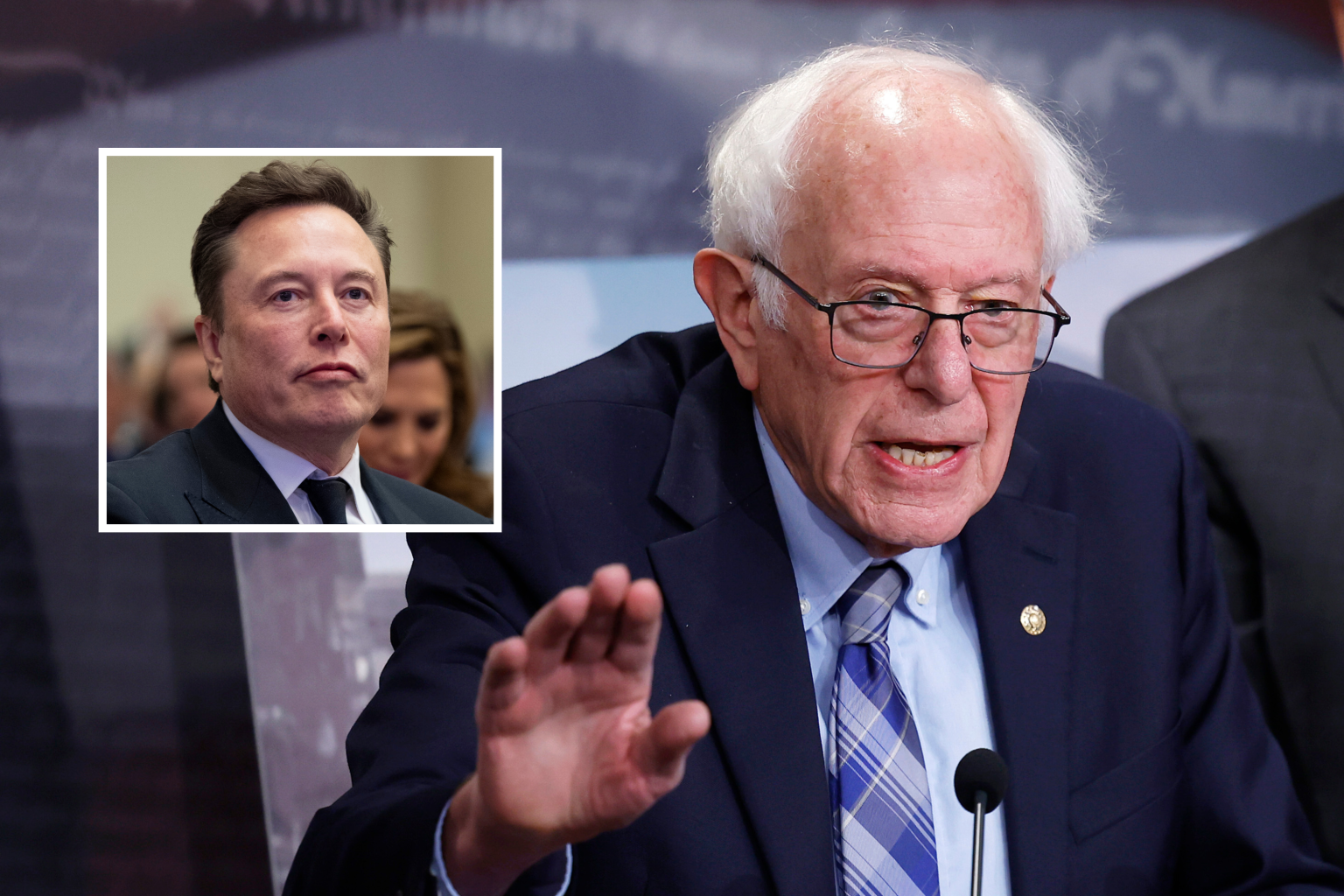The looming threat of a government shutdown has ignited a heated debate about the influence of wealth and power in American politics, raising concerns about the potential erosion of democratic principles. Senator Bernie Sanders, a prominent voice in this debate, has publicly questioned whether the United States is transitioning from a democracy to an oligarchy, citing the substantial influence of billionaire Elon Musk on recent legislative proceedings. The controversy centers around Musk’s intervention in negotiations over a government spending bill, with some Democrats accusing him of acting as a de facto leader of the Republican Party. This episode has amplified existing anxieties about the role of wealthy elites in shaping political outcomes and the vulnerability of democratic processes to undue influence.
Musk’s prominent role in the spending bill saga underscores a broader trend of increasing oligarchic tendencies in American politics. The appointment of Musk to co-lead the Department of Government Efficiency under the incoming Trump administration has further fueled concerns about the concentration of power in the hands of unelected individuals. While Musk’s supporters argue that his business acumen and innovative thinking are assets to the government, critics contend that his immense wealth and influence afford him an outsized role in policy decisions, bypassing traditional democratic channels. The debate surrounding Musk’s involvement highlights a fundamental tension between the principles of democratic governance and the growing power of wealthy individuals.
The government shutdown crisis has brought the influence of oligarchy into sharp focus, sparking a national conversation about the future of American democracy. Musk’s public pronouncements against the spending bill, followed by its subsequent failure in the House, have raised questions about the extent to which wealthy individuals can exert undue influence on legislative processes. Some members of Congress have openly criticized Musk, labeling him an “oligarch” and accusing him of undermining democratic institutions. These accusations reflect a growing fear that the concentration of wealth and power in the hands of a few individuals is threatening the very foundations of American democracy.
The situation is further complicated by Musk’s close relationship with President-elect Trump, who has seemingly aligned himself with Musk’s position on the spending bill. This alliance has raised concerns about the potential for an unholy trinity of wealth, political power, and social media influence to shape policy decisions, potentially bypassing established democratic processes. Critics argue that this dynamic represents a dangerous shift towards oligarchic rule, where the interests of a small elite group take precedence over the needs of the broader population. This convergence of power has intensified the debate about the balance between individual liberties, democratic principles, and the role of wealth in shaping political outcomes.
The debate extends beyond the immediate crisis, touching on deeper systemic issues within American democracy. The Citizens United Supreme Court decision in 2010, which effectively removed limits on corporate spending in elections, is often cited as a pivotal moment in the shift towards greater oligarchic influence. Critics argue that this decision has allowed wealthy individuals and corporations to exert disproportionate influence on political campaigns and policy decisions, undermining the principle of one person, one vote. The ongoing debate over campaign finance reform and the role of money in politics underscores the continuing tension between democratic ideals and the realities of power and influence in the American system.
Looking ahead, the government shutdown crisis and the controversy surrounding Musk’s influence raise crucial questions about the future trajectory of American democracy. Will the government be able to effectively address the concerns about oligarchic influence and restore public trust in its institutions? Or will the trend towards greater concentration of wealth and power continue to erode democratic principles? The answers to these questions will have profound implications for the future of the United States and its role as a beacon of democracy in the world. The ongoing debate highlights the need for continued vigilance and engagement on the part of citizens to ensure that the principles of democracy are upheld and that the government remains accountable to the people it serves.

